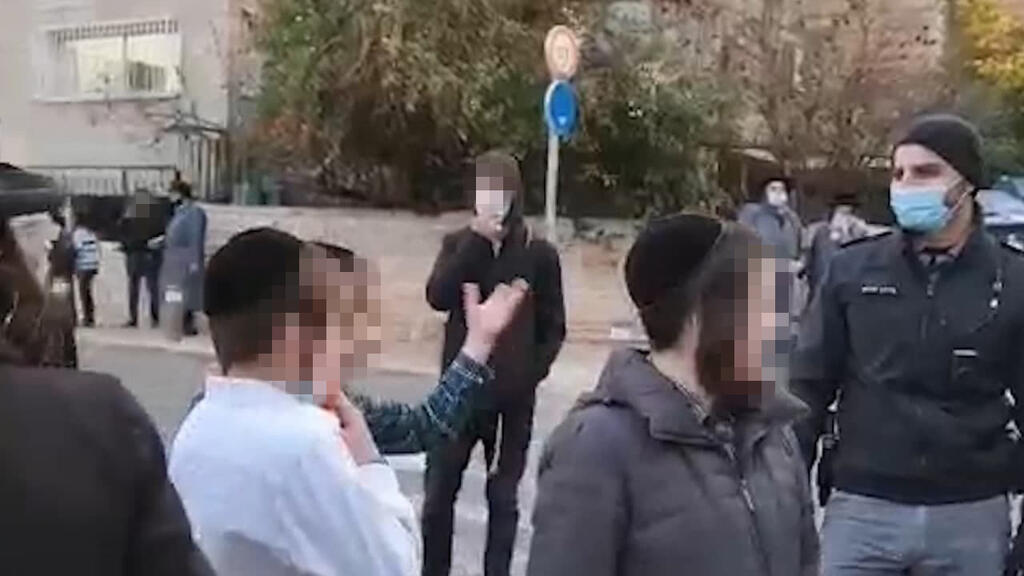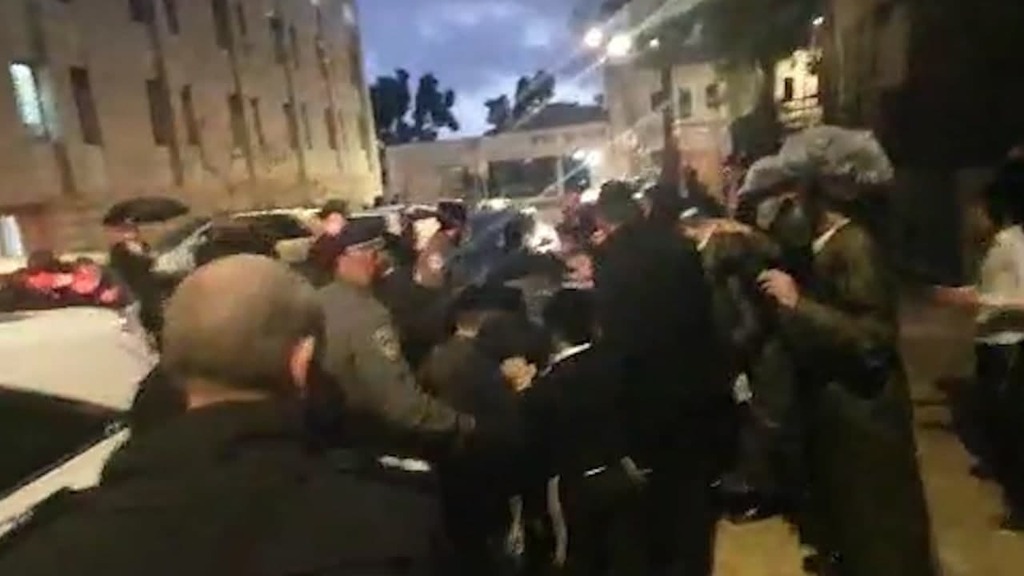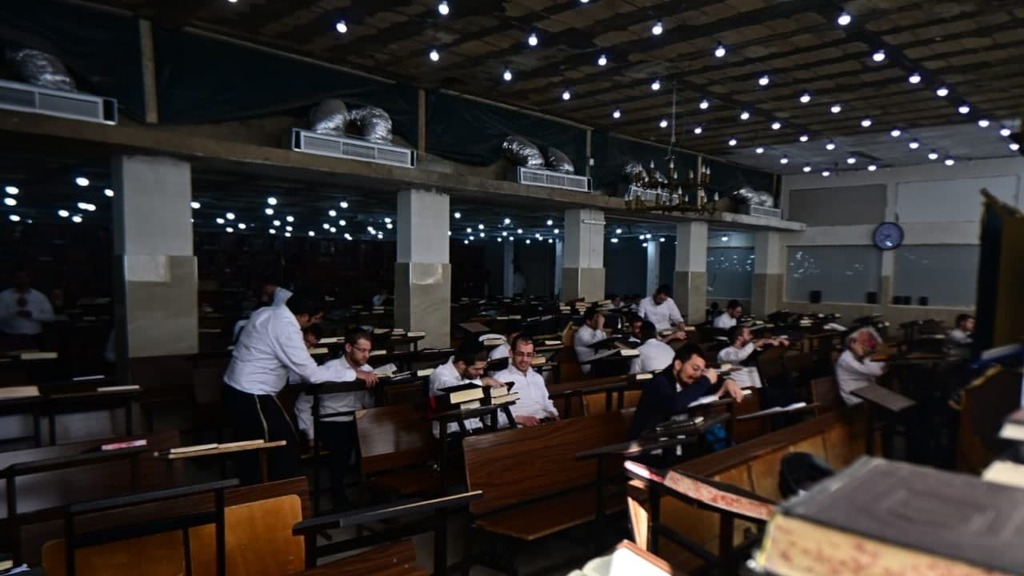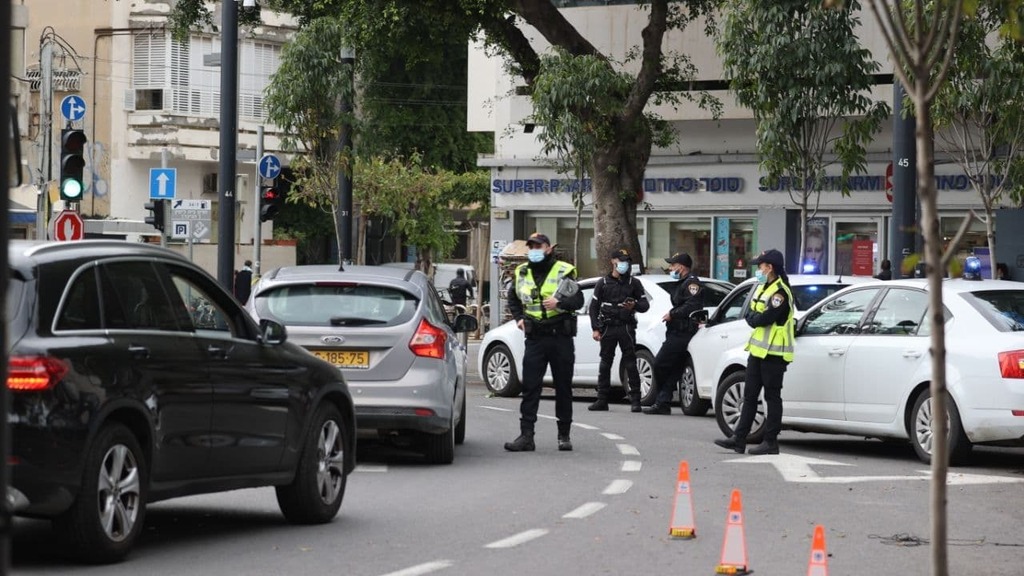Getting your Trinity Audio player ready...
The government will be asked to decide on an extension to the current coronavirus lockdown later in the week, as the infection rate in ultra-Orthodox communities continues to soar.
As COVID-19 infections spread rapidly among Haredi and Arab communities, some members of the coalition were demanding to know how mitigation orders were being enforced.
4 View gallery


Police attempt to enforce coronavirus restrictions in Jerusalem on Friday
(Photo: Pluralist)
"We must see an effective plan to fight the spread of coronavirus," Defense Minister Benny Gantz said over the weekend.
"We must insist on seeing real enforcement of mitigation regulations before we can discuss extending the lockdown," Gantz said.
4 View gallery


Ultra-Orthodox residents of Jerusalem clash with police over enforcement of coronavirus restriction on Friday
(Photo: Pluralist)
The average positivity rate in the ultra-Orthodox sector is 19%, in the Arab sector it stands at 15% while in the non-religious Jewish sector only 5.5% of all tests for coronavirus returned a positive result.
The ultra-Orthodox West Bank settlement of Beitar Illit showed a 29% positivity rate of all tests last week, up from 28% the previous week with 1,274 new COVID-19 cases identified.
Elad, a Haredi city in the center of Israel, showed a rise of positive tests to 23%, up from 18% the previous week with 1,007 new cases confirmed.
The ultra-Orthodox West Bank settlement of Modi'in Illit also showed an increase in its positivity rate, with 20% of tests returning a positive result - up from 18.5% the week before. Out of the 78,000 residents of the settlement, 2,393 new COVID-19 cases were confirmed.
Israel largest Haredi city Bnei Brak has also seen an increase in positive results of coronavirus testing, with a 19% positivity rate - up from 15% the previous week and with 3,202 new virus patients identified.
4 View gallery


A religious institution of learning operating in violation of coronavirus lockdown restrictions in Ashdod last week
(Photo: Avi Rokah)
Jerusalem continues to lead the country with active case counts, with one out of five of all COVID-19 patients living in the capital. In the past week alone, the city's positivity rate rose from 15% to 17% with 10,250 new cases confirmed.
The Health Ministry, which is advocating for an extension to the lockdown, said the R factor should be the determinant, claiming that the extensive vaccination drive that began last month is expected to soon begin to have an impact on community spread.
More than 2 million Israelis have already received the first dose of the vaccine and over 100,000 have been given two doses. Israel will begin vaccinating people over the age of 45 from Sunday.
Ministers will also be called to vote on an exit strategy from the third lockdown that was tightened last Thursday and is due to expire by the end of this week.
4 View gallery


A police roadblock in Tel Aviv to enforce coronavirus lockdown restrictions on Friday
(Photo: Moti Kimchi)
According to the announced plan, the lockdown restrictions will be eased through a three-phase plan.
In the first phase, school children ages 0 to 10 will be allowed to return to in-school learning, commerce will resume, and overseas travel return.
The second phase will see all schools opened for all ages. Israelis who will have received two doses of the coronavirus vaccine will have a "green passport" allowing them to attend cultural and sporting events under certain restrictions.
The third phase will see all hotels, sporting clubs, gyms, pools and wedding halls allowed to re-open.
Although the full cabinet was set to meet on Sunday, the coronavirus lockdown was not added to its schedule and decisions were not expected before the middle of the week.

